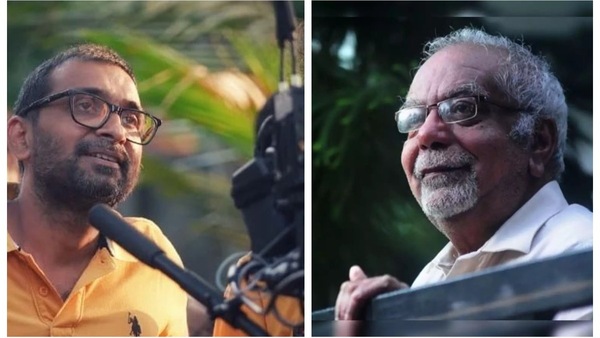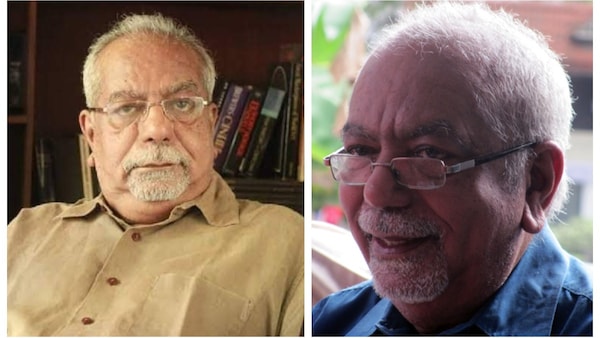KG George said he had a plan when he started his career, he achieved that and more with his films: Lijin Jose
Director Lijin Jose had helmed the documentary 8 ½ Intercuts: Life and Films of KG George, which is streaming on Neestream

Last Updated: 11.08 AM, Sep 25, 2023
Often, some of the greatest filmmakers’ work gain importance after their passing. Malayalam director KG George, who passed away on Sunday in Kochi at 77, is hailed as one of the greatest the film industry had to offer and yet his work is still not as widely discussed as some of his contemporaries’.
Director Lijin Jose’s documentary 8 ½ Intercuts: Life and Films of KG George , which was released on Neestream during the pandemic, shed light on why the filmmaker must be celebrated and his works should serve as a textbook to film enthusiasts in the modern era.
In an exclusive interview with OTTplay, Lijin tells us about what appealed to him most about the legendary filmmaker, who had helmed movies such as Irakal, Adaminte Variyellu, Yavanika, Kolangal and Mela.

“You cannot compare the general Malayali men’s psyche or persona with that of KG George sir. All of us men, me included, have a bit of a hypocritical aspect to our personality but sir was different. He was honest and projected himself as what he was. He never tried to become someone that he wasn’t. As a person, that’s the most important thing I can recall about him,” says Lijin, who has also directed movies such as Fahadh Faasil’s Friday and Kunchacko Boban’s Law Point.
On what prompted him to do the documentary on George, Lijin says, “When I had joined SD College, Alappuzha, as a student, I heard that his film Ee Kanni Koodi (1990) was shot there. So, I watched it on a VHS cassette and that was his first film that I had watched seriously. Even though I had watched Yavanika before, I didn’t pay much attention to its making. I got hooked into his filmography through Ee Kanni Koodi and after that I watched all films that were available on VHS back-to-back. I didn’t know much about movies back then, but I could sense that his films were distinct.”
It’s after Lijin had begun attending film festivals that he could spot that George’s movies had the same qualities that are attributed to masters in cinema. “That’s why I felt it was necessary to document his life and work somehow,” says Lijin.
Another reason, Lijin explains, is that he was disappointed that George’s films weren’t familiar with a lot of today’s audience including film students. “For instance, I had gone for a college interaction with mass communication students, who strongly advocate feminism. I had asked them about feministic films in Malayalam and they haven’t watched Adaminte Variyellu. That was a shock for me. Even recently, when I was talking with a bunch of students, who were passionate about cinema, they didn’t know too much about KG George or his work. So, when he was alive, we didn’t delve deep into his films; I hope at least now, people will take his films more seriously.”
George’s last movie was Elavamkodu Desam in 1998. Having studied his work and interacted with him in close quarters for the documentary, does Lijin feel that George still had so much to give?
“As someone who loved his work, I have felt that he could have done so much more,” says Lijin. “However, when I had asked him about this on camera while shooting the documentary, his answer was, ‘When I began making films, I had a plan. I wanted to do a film on cinema, drama, women and family; I wanted to do a political satire. So, whatever I have always wanted to do, I have done that and more’. So, he was satisfied with his work and content with his career.”

